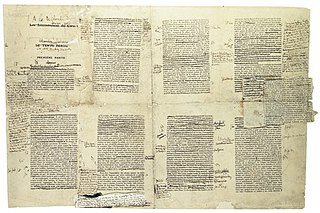
In Search of Lost Time, first translated into English as Remembrance of Things Past, and sometimes referred to in French as La Recherche, is a novel in seven volumes by French author Marcel Proust. This early 20th-century work is his most prominent, known both for its length and its theme of involuntary memory. The most famous example of this is the "episode of the madeleine", which occurs early in the first volume.

Cat's Cradle is a satirical postmodern novel, with science fiction elements, by American writer Kurt Vonnegut. Vonnegut's fourth novel, it was first published on March 18, 1963, exploring and satirizing issues of science, technology, the purpose of religion, and the arms race, often through the use of morbid humor.

The Black Dahlia (1987) is a crime fiction novel by American author James Ellroy. Its subject is the 1947 murder of Elizabeth Short in Los Angeles, California, which received wide attention because her corpse was horrifically mutilated and discarded in an empty residential lot. The investigation ultimately led to a broad police corruption scandal. While rooted in the facts of the Short murder and featuring many real-life people, places and events, Ellroy's novel blends facts and fiction, most notably in providing a solution to the crime when in reality it has never been solved. James Ellroy dedicated The Black Dahlia, "To Geneva Hilliker Ellroy 1915-1958 Mother: Twenty-nine Years Later, This Valediction in Blood." The epigraph for The Black Dahlia is "Now I fold you down, my drunkard, my navigator, My first lost keeper, to love and look at later. -Anne Sexton."
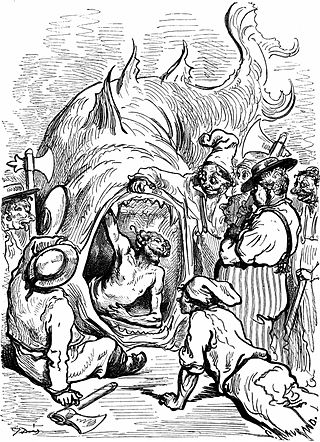
In literature, film, and other such arts, an unreliable narrator is a narrator who cannot be trusted, one whose credibility is compromised. They can be found in fiction and film, and range from children to mature characters. While unreliable narrators are almost by definition first-person narrators, arguments have been made for the existence of unreliable second- and third-person narrators, especially within the context of film and television, but sometimes also in literature.

Melmoth the Wanderer is an 1820 Gothic novel by Irish playwright, novelist and clergyman Charles Maturin. The novel's titular character is a scholar who sold his soul to the devil in exchange for 150 extra years of life, and searches the world for someone who will take over the pact for him, in a manner reminiscent of the Wandering Jew.

William John Banville is an Irish novelist, short story writer, adapter of dramas and screenwriter. Though he has been described as "the heir to Proust, via Nabokov", Banville himself maintains that W. B. Yeats and Henry James are the two real influences on his work.
Rabo Karabekian is a fictional character and the narrator and protagonist of the 1987 novel Bluebeard by American author Kurt Vonnegut. Karabekian is an abstract expressionist artist who appears first in the 1973 novel Breakfast of Champions as the artist of the $50,000 painting The Temptation of Saint Anthony. Vonnegut's 1987 novel Bluebeard is largely a fictional autobiography of Karabekian, and is told primarily as a first person narrative.
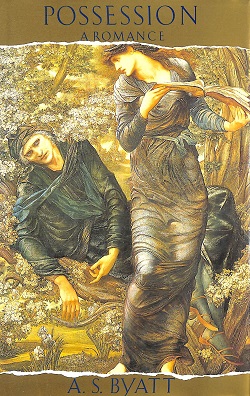
Possession: A Romance is a 1990 best-selling novel by English writer A. S. Byatt that won the 1990 Booker Prize for Fiction. The novel explores the postmodern concerns of similar novels, which are often categorised as historiographic metafiction, a genre that blends approaches from both historical fiction and metafiction.

A Maggot (1985) is a novel by British author John Fowles. It is Fowles' sixth major novel, following The Collector, The Magus, The French Lieutenant's Woman, Daniel Martin and Mantissa. Its title, as the author explains in the prologue, is taken from the archaic sense of the word that means "whim", "quirk", "obsession", or even a snatch of music. Another meaning of the word "maggot" becomes apparent later in the novel, used by a character to describe a white, oblong machine that appears to be a spacecraft. Though the author denied that A Maggot is a historical novel, it does take place during a precise historical timeframe, April 1736 to March 1737, in England. It might be variously classified as historical fiction, mystery, or science fiction. Because of the narrative style and various metafictional devices, most critics classify it as a postmodern novel.

The Sea is a 2005 novel by John Banville. His fourteenth novel, it won the 2005 Booker Prize.

The Story Girl is a 1911 novel by Canadian author L. M. Montgomery. It narrates the adventures of a group of young cousins and their friends who live in a rural community on Prince Edward Island, Canada.
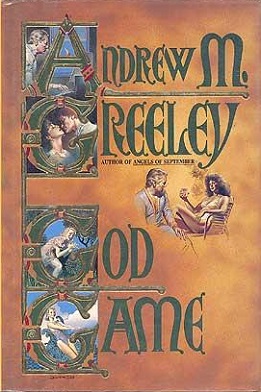
God Game is a science fiction novel written by Andrew Greeley. It was published in hardcover by Warner Books in 1986, with a paperback edition by Tor Books following in 1987.
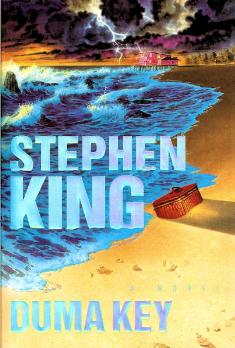
Duma Key is a novel by American writer Stephen King published on January 22, 2008, by Scribner. The book reached No. 1 on the New York Times Best Seller list. It is King's first novel to be set in Florida, as well as the first to be set in Minnesota. The dust jacket features holographic lettering.

The Book of Evidence is a 1989 novel by John Banville. Many of the characters in The Book of Evidence appear in the 1993 sequel Ghosts.

Chronicles of Avonlea is a collection of short stories by Canadian author L. M. Montgomery, related to the Anne of Green Gables series. It features an abundance of stories relating to the fictional Canadian village of Avonlea, and was first published in 1912. Sometimes marketed as a book in the Anne Shirley series, Anne plays only a minor role in the book: out of the 12 stories in the collection, she stars in only one, and has a small supporting role in another. She is otherwise only briefly mentioned in passing in five other stories: "Each in His Own Tongue", "Little Joscelyn", "The Winning of Lucinda", "Quarantine at Alexander Abraham's" and "The End of a Quarrel".

The Ghost is a 2007 political thriller by the best-selling English novelist and journalist Robert Harris. In 2010, the novel was adapted into a film, The Ghost Writer, directed by Roman Polanski and starring Ewan McGregor and Pierce Brosnan, for which Polanski and Harris co-wrote the screenplay.

Athena is a 1995 novel by the Irish author John Banville, the third in a series that started with The Book of Evidence and continued with Ghosts. These three form the "Frames" trilogy, linked by the theme of paintings.
Claire Kilroy is a contemporary Irish author. She was born, and currently resides, in Dublin, Ireland.

Winnifred "Wendy" Torrance is a fictional character and protagonist of the 1977 horror novel The Shining by the American writer Stephen King. She also appears in the prologue of Doctor Sleep, a 2013 sequel to The Shining.
The Singularities is a novel by the Irish author John Banville, published in 2022. It is based on characters and themes from the author's earlier novels. Felix Mordaunt, sentenced to life for murder, has been released from prison. He goes to visit his childhood home which is now occupied by Adam and Helen Godley, a middle aged couple. Adam's late father, Adam senior, was a famous academic. He is the author of the "Brahma theory", a hypothesis of space, time and multiple universes. Adam engages William Jaybey, an academic author, to write a biography of his father; Jaybey accepts the commission though he has little regard for Professor Godley's work.

















